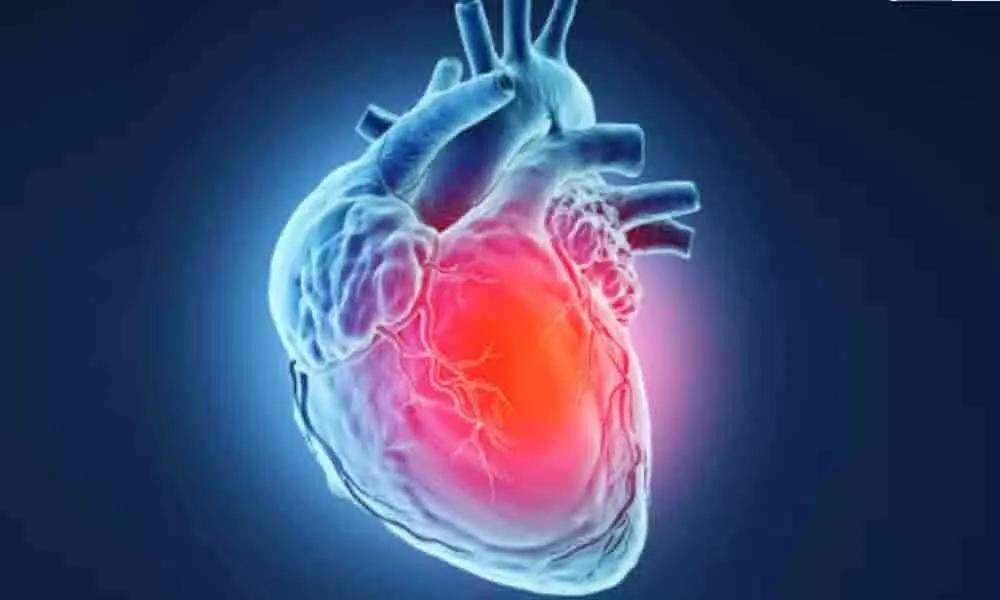Live
- Have time for jailed leaders but none for achievers: BJP slams Delhi govt over chess champion’s pain
- Alliance University holds 13th Convocation, 1145 students receive degrees
- SC orders strict action against illegal construction
- Man kills sibling over property dispute
- Karnataka gets third govt cardiology hospital
- Minister Ramalinga’s efforts help safeguard over 10,000 acres of temple Land
- Laxminarayan College gets NAAC B+ accreditation
- Champions Trophy: India vs Pakistan Match Likely to Be Held on This Date
- Tigress Zeenat spotted in Purulia
- Collectors asked for proper assessment of crop loss
Just In
AI can predict heart failure from just one beat: Study


Scientists have developed an artificial intelligence (AI) based tool that can detect heart failure with 100 per cent accuracy using just one raw electrocardiogram (ECG) heartbeat.
London (PTI): Scientists have developed an artificial intelligence (AI) based tool that can detect heart failure with 100 per cent accuracy using just one raw electrocardiogram (ECG) heartbeat.
The research, published in Biomedical Signal Processing and Control Journal, is an immense advance over the existing methods for detecting Congestive Heart Failures (CHF) -- a chronic progressive condition that affects the pumping power of the heart muscles. CHF is highly prevalent with significant mortality rates, and high healthcare costs, clinical practitioners and health systems urgently require efficient detection processes, the study noted.
The researchers mentioned that while the earlier method -- which generally focused on variations in the heartbeat -- was effective, it was time-consuming and prone to errors. Sebastiano Massaro at the University of Surrey in the UK, along with his team, tackled the shortfalls of the older technique using Convolutional Neural Networks (CNN) -- a set of hierarchical neural networks that are highly effective in recognising patterns and structures in data. The new method uses advanced signal processing, and machine learning tools to analyse raw ECG signals, delivering complete accuracy, the authors noted. Machine learning is an application of AI that provides systems the ability to automatically learn and improve from experience without being explicitly programmed.
"We trained and tested the CNN model on large publicly available ECG datasets featuring subjects with CHF as well as healthy, non-arrhythmic hearts," Massaro said. The model, according to Massaro, is also one of the first known to be able to identify the ECG's morphological features, specifically associated with the severity of the condition.
Explaining the implications of the findings, Leandro Pecchia, President at European Alliance for Medical and Biological Engineering, said that approximately 26 million people worldwide affected by a form of heart failure, and that the current research presented a major advancement on the existing methodology.
"Enabling clinical practitioners to access an accurate CHF detection tool can make a significant societal impact, with patients benefitting from early and more efficient diagnosis and easing pressures on NHS resources," Pecchia said.

© 2024 Hyderabad Media House Limited/The Hans India. All rights reserved. Powered by hocalwire.com






